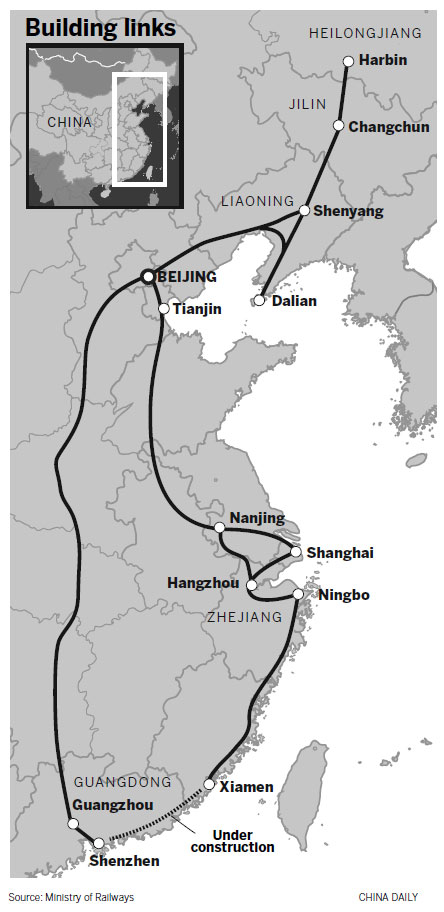Railway construction getting back on track
 0 Comment(s)
0 Comment(s) Print
Print E-mail China Daily, February 17, 2012
E-mail China Daily, February 17, 2012
Though a section of rail between Xiamen and Shenzhen will not be finished this year, the four arteries will start operation and significantly cut travel time between major cities, Yang said.
 For instance, train travel from Beijing to Shenzhen will take eight hours instead of the current 24 hours, and trips from Beijing to Harbin will take only five hours instead of nine.
For instance, train travel from Beijing to Shenzhen will take eight hours instead of the current 24 hours, and trips from Beijing to Harbin will take only five hours instead of nine.
China's high-speed rail sector was hampered by a funding shortage last year, when money from the government's 4 trillion yuan ($635 billion) stimulus plan dried up and the government's tightened monetary policy, after which the ministry was unable to get bank loans. More than 10,000 kilometers of high-speed railway projects were halted.
Wang Mengshu, a leading rail tunnel expert, said on Thursday that railway construction is expected to resume this year.
Wang, deputy chief engineer at China Railway Tunnel Group, told China Daily, citing a recent railway working conference, that the work on 6,000 kilometers of halted railway projects will resume this year and funds will be allocated gradually.
"The ministry will also begin nine new railway projects this year, but none of them are high-speed railways," he said.
An article posted on Feb 8 on the website of the Chongqing development and reform commission, a branch of China's top economic planner, supports Wang's statement.
According to the article, Lu Dongfu, deputy minister of railways, said at a meeting on Dec 30 that the ministry plans to spend 406 billion yuan on 249 infrastructure projects this year.






Go to Forum >>0 Comment(s)